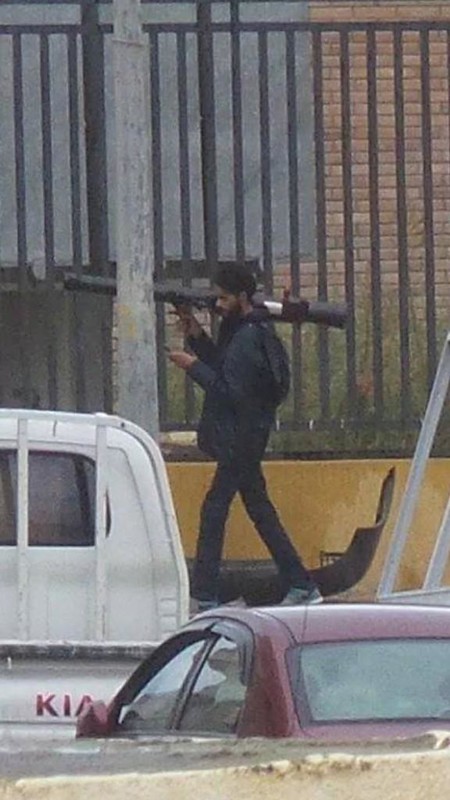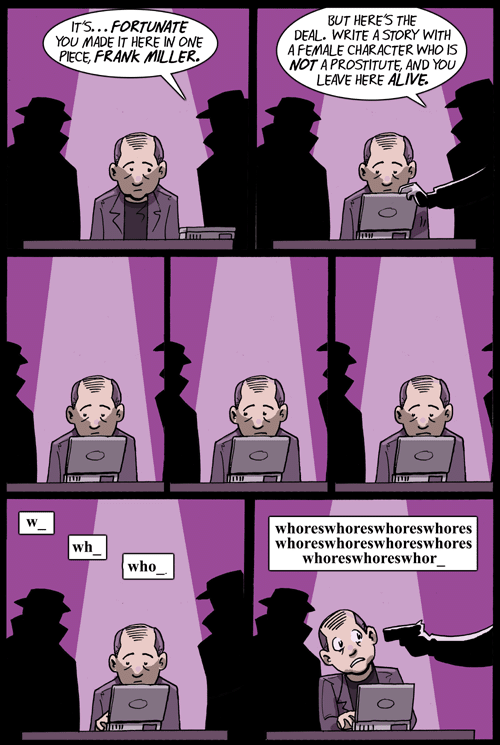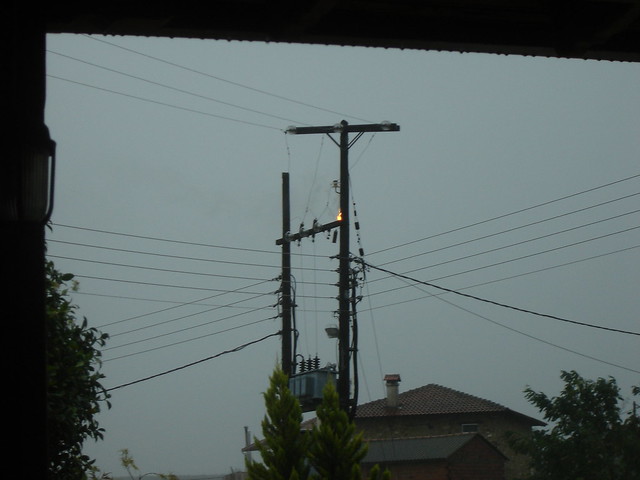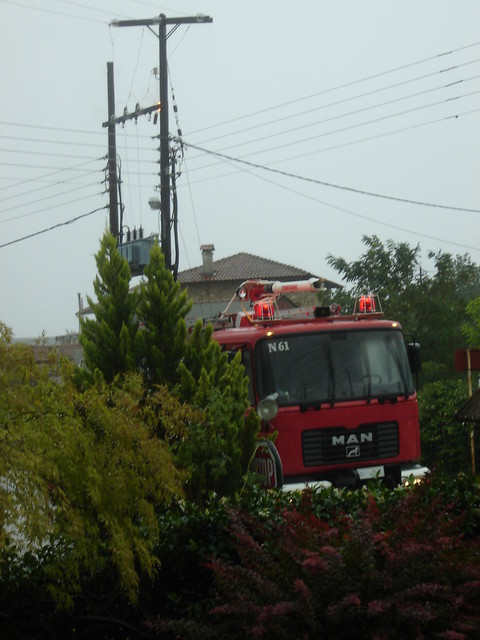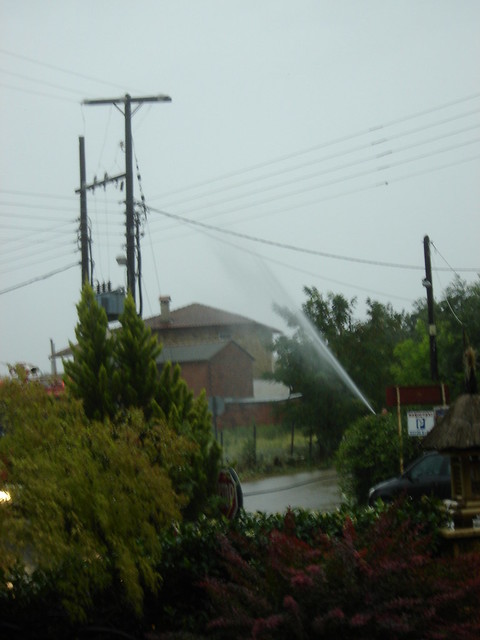Tuesday, December 09, 2014
Sunday, November 30, 2014
Achilles on the Plains
Like Achilles, Roman Nose had stayed out of the morning battle, and like Achilles, his absence had been keenly felt by his warriors. The day before he had destroyed the charm of his sacred war bonnet. One of the taboos connected with it was that he must not eat food taken from the pot with an iron implement. At a feast given by the Sioux, Roman Nose ate meat served by a squaw with an iron fork. Tall Bull, his friend, called his attention to the error and urged him to take purification ceremonies at once. But that very night Forsyth's command was discovered and Roman Nose had no time for the ceremonies before the battle.
He stayed out of the first charge, saying he would die if he made it. But he was such a power that the other Cheyennes kept urging him. In mid-afternoon he suddenly decided to go into the fight. Putting on the war bonnet, he mounted. With a wave of his great arm, the giant summoned his warriors. A moment later they were charging.
Forsyth's men fought this new danger desperately. At the dead run, Roman Nose thundered down upon them. Just before he reached the trenches, a shot from some bushes to one side, brought him crashing down. Jack Stilwell and two companions were hiding there. Roman Nose's followers scattered.
The place where Roman Nose fell was on the river bank. Painfully he dragged himself out of sight among the bushes. There was he found by his people and carried away. He died in the Cheyenne village that night.
- Paul Iselin Wellman, Death on the Prairie: The Thirty Years' Struggle for the Western Plains (1934)
I read this account of the death of the great Cheyenne warrior Roman Nose more than 10 years ago, when I was a student at UCL. It stayed with me, although I could not remember the details of names and dates, so I was pleased to finally be able to locate the passage again on the internet.
Sunday, November 09, 2014
"But I Love...I Love All...All People..."
On 13 November 1989, six days after the fall of the Berlin Wall, Erich Mielke addressed the parliament of the German Democratic Republic in his role as Minister of State Security. When one member of the parliament objected to his use of the term "comrades" to address them, he replied "But I love...I love all...all people...". The room could only laugh.
I know about Mielke, and about the above clip, because of Philip Kerr's novel Field Grey (2010).
Thursday, October 30, 2014
Tuesday, October 07, 2014
Computer Security
New computer security question #1: "As a child, what color was the bucket that you used to bring water from the nearest well or stream?"
— Werner Twertzog (@WernerTwertzog) September 13, 2014
Computer security question #2: "Which disease came closest to killing you before the age of 5?"
— Werner Twertzog (@WernerTwertzog) September 13, 2014
Computer security question #3: "In your experience as a child, which country's occupation army was the least vengeful?"
— Werner Twertzog (@WernerTwertzog) September 13, 2014
Computer security question #4: "What memory of violence do you try hardest to suppress?"
— Werner Twertzog (@WernerTwertzog) September 13, 2014
Monday, August 25, 2014
Dame With A W
In honour of the release of Sin City: A Dame To Kill For, here's one of the finest moments from Shortpacked!:
Monday, July 28, 2014
Centenary
'I say, is it really true that the French artillery had to fire on their infantry?' Delaforce asked. 'To drive them over the top?'
'Absolutely,' Finlayson said. 'They had a mutiny. The troops wouldn't leave the trenches, so the French generals laid down a barrage on them. That soon shifted them.'
'What happened afterwards?'
'Afterwards? There was no afterwards. Why d'you think they didn't want to get out of the trenches?'
- Derek Robinson, Goshawk Squadron (1971)
Thursday, July 17, 2014
A Storm In Macedonia
I'm currently at Olynthos in northern Greece, excavating on the Classical city site. On Tuesday we couldn't work because of torrential rain and a thunderstorm. During the storm, lightning struck the electricity pylon just across the road, about 20 metres from where I was sitting. The pylon was knocking out and a small fire started, which had to be put out by the local fire brigade. These are the photos I took of that:
In terms of actual archaeology, we don't really have any features in the trench yet, but we have had a couple of interesting finds: a stone tool which might be prehistoric, but could also be the sort of thing a Classical potter might have used to burnish pottery, and a sling bullet which is almost certainly from the siege which destroyed Olynthos in 348 BC. This is my photo of the latter:
Sunday, June 22, 2014
Kohima-Imphal
While the 70th anniversary of D-Day got fairly extensive coverage recently, I've seen pretty much nothing about the fact that it's also 70 years since the battle of Kohima-Imphal, the most significant battle of the Second World War in south-east Asia. It's not too difficult to discern the difference in coverage, as fighting to liberate France from the Nazis has very different connotations to fighting in order to keep Burma British.
Nonetheless I feel I should mention it, as my grandfather on my Dad's side was there, with the 2nd battalion of the South Lancashire Regiment. This article suggests that there are now only three surviving members of the Burma Star Association, although, of course, the vast majority of Commonwealth troops in the battle were Indian. Also, Dad tells me that Grandad never actually joined the Burma Star Association, believing it to be full of clerks and other rear-echelon types.
Nonetheless I feel I should mention it, as my grandfather on my Dad's side was there, with the 2nd battalion of the South Lancashire Regiment. This article suggests that there are now only three surviving members of the Burma Star Association, although, of course, the vast majority of Commonwealth troops in the battle were Indian. Also, Dad tells me that Grandad never actually joined the Burma Star Association, believing it to be full of clerks and other rear-echelon types.
Friday, June 06, 2014
I Survived Able Archer 83
Borrowing a trick from Blood & Treasure, an article over at the Guardian suggests that Manchester was destined to be the recipient of "one or two 'airbursts' of up to five megatons" in the event of war with the Soviet Union. The Nukemap website suggests the following effects for a five megaton airburst over Manchester:
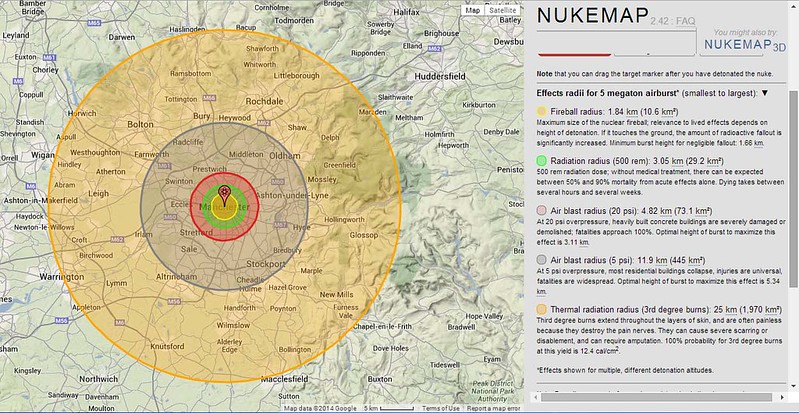
Heaton Chapel is just to the north-west of Stockport, so I don't fancy two year-old me's chances very much.

Heaton Chapel is just to the north-west of Stockport, so I don't fancy two year-old me's chances very much.
Friday, May 30, 2014
Minimum Wage
J.T. once asked me what sociologists had to say about gangs and inner-city poverty. I told him that some sociologists believed in a "culture of poverty" - that is, poor blacks didn't work because they didn't value employment as highly as other ethnic groups did, and they transmitted this attitude across generations.
"So you want me to take pride in the job, and you're only paying me minimum wage?" J.T. countered. "It don't sound like you think much about the job yourself."
- Sudhir Venkatesh, Gang Leader for a Day: A rogue sociologist crosses the line (2008)
Saturday, April 05, 2014
Monday, March 31, 2014
Writing Terror
So for various reasons, I've recently been investigating what's been written about the European terrorism of the 1970s/1980s. One of the things which is striking is how the "terrorist memoir" seems to be a niche sub-genre these days. This year one of November 17 published Γεννήθηκα 17 Νοέμβρη, but there are a couple of efforts from Baader-Meinhoff and other German groups, and the occasional Red Brigader. Even Britain gets in on the act with Stuart Christie's Granny Made Me An Anarchist. What's curious is that even though right-wing terrorist groups were pretty prominent during the same period, they don't seem to be represented in the memoirs market, and I'm wondering why that is. Lack of the literary/intellectual tradition that the left has? Publishers less sympathetic? Something else?
Friday, February 28, 2014
The Wrong Kind of Cynicism
And, vexingly for Eric, on the rare occasions he’s convinced a journalist that the CIA murdered his father, the revelation has not been greeted with horror. One writer declined Eric’s invitation to attend his press conference saying, ‘We know the CIA kills people. That’s old news.’
In fact, Eric told me, this would be the first time anyone had ever publicly charged the CIA with murdering an American citizen.
‘People have been so brainwashed by fiction,’ said Eric as we drove to the local Kinko’s to pick up the press releases for the conference, ‘so brainwashed by the Tom Clancy thing, they think, “We know this stuff. We know the CIA does this.” Actually, we know nothing of this. There’s no case of this, and all this fictional stuff is like an immunization against reality. It makes people think they know things that they don’t know and it enables them to have a kind of superficial quasi-sophistication and cynicism which is just a thin layer beyond which they’re not cynical at all.’
- Jon Ronson, The Men Who Stare at Goats (2004)
The story of Eric's father, Frank Olson, and why he may have been murdered, can be found here, as well as in Ronson's book.
Saturday, January 25, 2014
Subscribe to:
Comments (Atom)

